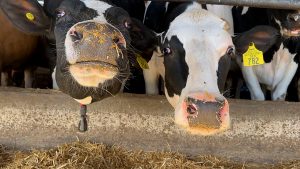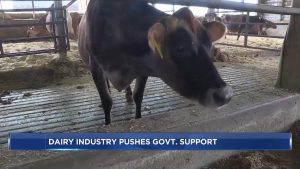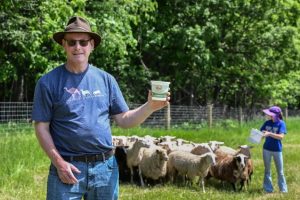
Mark Petersen is a third generation dairy farmer in the Appleton area. He gets up at dawn every day to tend to his cows.
“I don’t mind getting up in the morning; some mornings more so than others, however,” he said. “It takes its toll on the body. I realize I’m getting a bit older because I got a sore hip, and knees get sore.”
Petersen said his farm, Petersen Dairy, not only sells the milk their cows produce, but also their manure.
“All the manure we produce gets composted and sold,” he said.
Recently, raw manure has become the major draw for some of the state’s dairy farms, said Kevin Jarek, crops and soils agent with UW-Madison’s division of extension.
He said the cost of fertilizer has skyrocketed since 2020. This has forced some crop farmers to turn to dairy farmers for manure to fertilize their fields for the upcoming planting season.
“Manure sharing isn’t new, but all of a sudden, when things cost two to three times what they used to, there’s even more urgency or attention on it, and I think that’s what we’re going to see in the coming spring,” Jarek said.
Right now, the market for raw manure is smaller in Wisconsin than in other states, said Paul Mitchell, extension state specialist in cropping systems and environmental management for UW-Madison.
He said there are regulations limiting the number of Wisconsin crop farmers who can use manure for their crop fields.
Mitchell said crop farmers who choose manure are likely turning to their dairy farming neighbors for the product instead of driving long distances.
Jarek said the nutrients found in manure make it beneficial for certain crop farmers to use as fertilizer, so long as they spread it responsibly.
Petersen said he’s glad he gets to focus on his cows over crops, saying they’ve almost become family over the years.
“I have more conversations with cows than I do with people a lot of the time,” he said.























